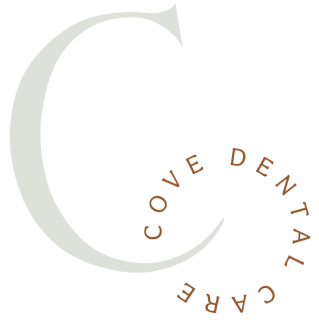Greer:

Child Dental Care in Greenville, SC
Dental hygiene should begin when your child is a baby. Starting your children on an oral hygiene routine from an early age will go a long way in ensuring healthier teeth and gums throughout their lives. Part of this involves scheduling regular visits to a dentist. At Cove Dental Care, we are a family dental office with a wealth of experience in both adult and children’s dentistry.
Your child’s first dental appointment should take place within six months of the first tooth coming out, but no later than their first birthday. Dental visits should start early because your child can get cavities as soon as they have teeth. However, the first cleaning typically takes place a little later, between 12 and 36 months, after most of the baby teeth have appeared. Right from the first dental checkup, you should work with an experienced children’s dentist.
What Will My Child’s First Exam Look Like?
What if My Child Doesn’t Cooperate?
It is normal for both adults and children to have dental anxiety. However, if your child does not cooperate or gets really fearful, you should try to create excitement around the first visit and make them look forward to future appointments. Below are some tips to help you.
- Have a two-way conversation with your child about the dental visit
- Read books or watch videos about dentists together
- Choose a pediatric dentist, preferably a fun one
- Schedule your appointment when your child tends to be happiest and most cooperative
- Be a good role model by being cheerful and staying relaxed
- Be patient with the little one
How Can I Prevent My Child from Getting Cavities?
Prevention is always better than cure. As a parent, you will want to keep dental cavities away in order to avoid future headaches. Here is how you can go about it.
- Regular brushing and flossing. Start brushing as soon as the first tooth appears
- Ensure your little one eats a well-balanced diet
- Make sure your child drinks a lot of water
- Avoid sharing food and beverages to minimize the spread of bacteria
- Schedule routine dental visits
- Ask your child’s dentist about dental sealants. The protective sealants help to prevent decay
In case you suspect your child has a cavity, take them for a dental checkup immediately. Indeed, family dentistry also covers diagnosis and treatment of cavities in children.
Should I Be Brushing My Child’s Teeth with Fluoride?
How Often Should My Child Come in for a Cleaning and Exam?
The Importance of Children’s Dentistry
Children’s dentistry is a cornerstone of early childhood development, fostering a lifetime of optimal oral health and well-being. The importance of specialized dental care for children cannot be overstated, as it addresses unique needs and challenges that arise during their formative years.
Firstly, children’s dentistry plays a crucial role in preventive care. Regular dental check-ups from an early age enable dentists to monitor the growth and development of a child’s teeth, gums, and jaw. This proactive approach helps identify and address any issues or anomalies before they escalate, ensuring that potential problems are detected and treated early, reducing the need for more invasive interventions in the future.
Secondly, establishing positive oral hygiene habits in childhood sets the stage for a lifetime of proper dental care. Children’s dentists educate young patients about the importance of brushing, flossing, and maintaining a balanced diet. By imparting these essential skills and knowledge, children learn how to take responsibility for their oral health, preventing cavities, gum disease, and other dental issues as they grow.
Furthermore, children’s dentistry is pivotal in addressing developmental concerns. Pediatric dentists are trained to identify and manage issues like tooth misalignment, bite problems, and early signs of orthodontic needs. Timely intervention during childhood can lead to more effective and less invasive orthodontic treatments later on, ensuring that children enjoy healthy, functional smiles as they transition into adolescence and adulthood.
Children’s dentistry also plays a vital role in alleviating dental anxiety and promoting a positive relationship with oral health. Pediatric dental offices are designed to create a comfortable, child-friendly environment, fostering a sense of ease and trust. By introducing children to the dental experience in a friendly and non-threatening manner, pediatric dentists help mitigate dental phobias and establish a foundation for a lifetime of stress-free dental visits.
Lastly, children’s dentistry contributes to overall health and well-being. Oral health is intricately linked to systemic health, and early dental care can have far-reaching effects. Dental problems in children, if left untreated, can lead to pain, discomfort, and even impact their ability to eat, speak, and socialize. By addressing dental issues promptly and providing comprehensive care, children’s dentistry promotes holistic well-being and supports children in reaching their full potential.
In conclusion, the importance of children’s dentistry extends beyond the realm of dental health, influencing a child’s overall development and well-being. Through preventive care, education, early intervention, and creating positive dental experiences, children’s dentistry lays a solid foundation for a lifetime of optimal oral health, self-confidence, and a positive attitude towards dental care.
